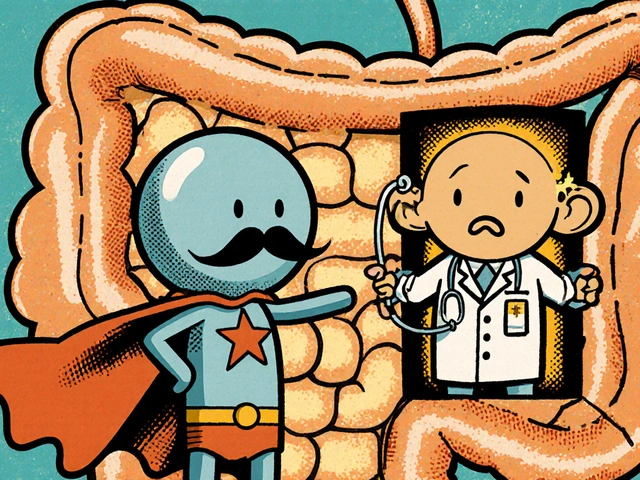Gas Relief: Simple Ways to Cut the Bloat
Got that uncomfortable belly feeling after a meal? You’re not alone. Gas builds up for many reasons—eating too fast, certain foods, or even stress. The good news? You can ease it fast with a few easy tweaks, some over‑the‑counter help, and a couple of natural tricks.
Quick Everyday Fixes
First, slow down. Chewing each bite thoroughly gives your stomach a head start on digestion and cuts the air you swallow. Try drinking a glass of warm water before you eat; it helps move food through the gut. If you’re prone to beans, broccoli, or onions, start with smaller portions and see how you feel.
Another fast fix is a short walk after meals. Ten minutes of gentle movement gets the muscles working and pushes trapped gas out. Even a simple stretch—lifting your knees to your chest while sitting—can give relief in minutes.
OTC Options That Really Work
When diet changes aren’t enough, over‑the‑counter (OTC) products step in. Simethicone is the most common ingredient; it breaks up gas bubbles so they’re easier to pass. Look for brands like Gas-X or Mylicon. Take the dose after your biggest meal, and you’ll notice the pressure lift.
If you suspect lactose is the culprit, an OTC lactase supplement can help you enjoy dairy without the fallout. Just pop a tablet before your cheese pizza, and you’ll often avoid the dreaded bloating.
For those who need a stronger punch, activated charcoal tablets are an option. They absorb gas‑forming compounds, but they can also bind to nutrients, so use them sparingly and not every day.
Natural Helpers to Add to Your Routine
Herbal teas are a gentle, drug‑free way to calm the gut. Peppermint, ginger, and fennel tea have been used for centuries to reduce gas. Brew a cup after dinner and sip slowly—watch the discomfort melt away.
Probiotic supplements support healthy gut bacteria, which can lower gas production over time. Look for a multi‑strain formula with Lactobacillus and Bifidobacterium. It’s not an instant fix, but regular use can make a noticeable difference.
CBD oil, featured in our article on CBD and Self‑Care, may also help some people by relaxing the intestinal muscles. If you’re already curious about CBD, a small dose might ease both stress‑related and digestive gas.
Finally, a pinch of cumin or coriander in your cooking can act like a natural anti‑gas agent. These spices are easy to add to soups, stews, or even sprinkled on roasted veggies.
When to Seek Professional Help
Most gas is harmless, but if you experience severe pain, weight loss, or blood in your stool, it’s time to see a doctor. Persistent symptoms could signal deeper issues like irritable bowel syndrome (IBS) or a food intolerance that needs targeted treatment.
Our guide on “When to Switch From Gabapentin” touches on medication side effects that can include gas. If you’re on prescription drugs, talk to your pharmacist about possible gastrointestinal impacts.
Bottom line: a mix of mindful eating, a few OTC choices, and natural remedies can keep gas at bay. Try one change at a time, track what works, and you’ll find a personalized plan that keeps your belly comfortable and your life moving forward.




